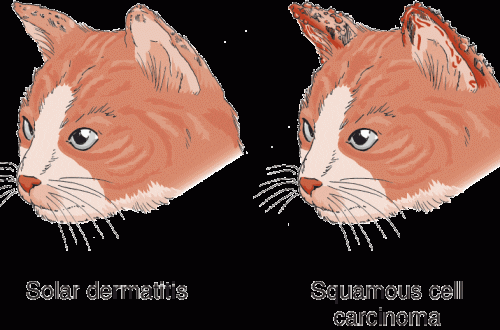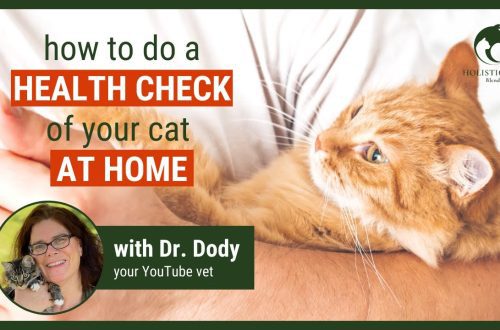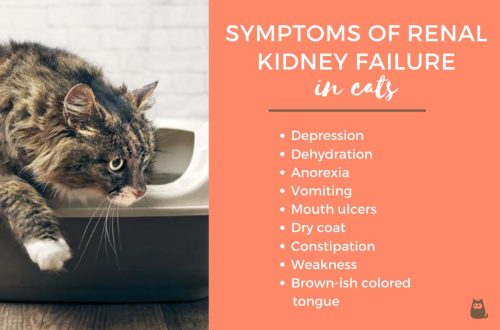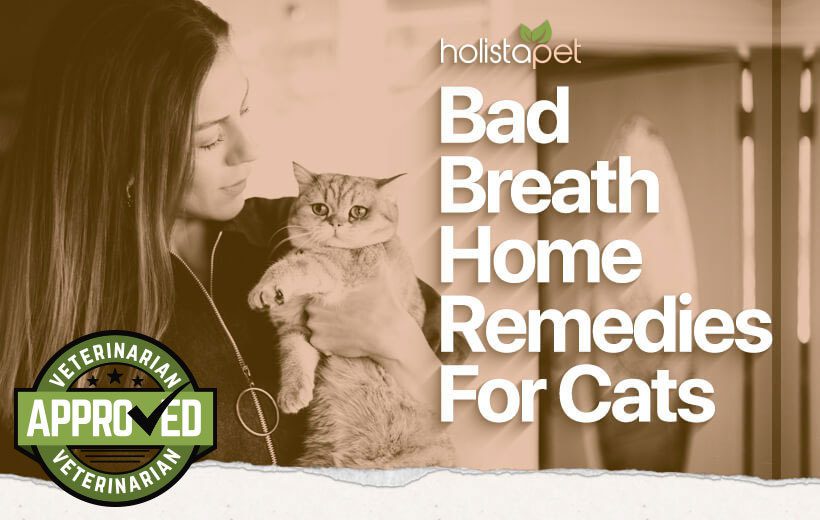
Bad breath in a cat: causes and solutions
Bad breath in cats is often caused by health problems. They apply both to the oral cavity and to systemic internal diseases.
Contents
Why does a cat’s mouth smell bad?
Oral problems
According to International Cat Care, 85% of cats suffer from some kind of dental disease, and this is not at all surprising. A cat’s teeth and gums, also called gingival tissue, are home to many naturally occurring bacteria. As a result of the multiplication of these microorganisms, which are not destroyed by brushing, bacterial plaque forms on the teeth. As a result of reaction with the natural minerals contained in the cat’s saliva, this film hardens and turns into tartar.
Bacteria in a cat’s mouth that have not been removed release malodorous compounds as they break down food debris. As a result, in addition to bad breath in a cat, many problems can arise. Bacteria in the mouth can travel through the bloodstream to other organs and cause infections in various parts of the body. This often leads to the development of diseases of the heart and kidneys. The accumulation of tartar also leads to gingival recession and recession, which weakens the roots of the teeth. In the end, such loose teeth fall out. All this leads to the smell of rot from the cat’s mouth and pain in the mouth.
Cats can also have foreign objects stuck between their teeth and gums, from insects they catch and eat to non-food items that can cause mouth injuries.
Other causes of halitosis, as bad breath is scientifically known, in cats associated with oral problems include oral tumors and abscesses that occur in the tissues around the teeth, as well as inflammatory gum disease.
Systemic causes
The reason for the smell from the mouth of a cat is not always hidden in the oral cavity. Sometimes these are serious diseases that require immediate treatment.
- Chronic kidney disease: Kidney disease affects about one in three cats, according to the Pet Health Network. As kidney function decreases, waste products such as urea and ammonia accumulate in the blood of the animal. Because of this, the cat’s breath can smell like urine or ammonia.
- Diabetes: Diabetes mellitus is a disease of the pancreas. In simple terms, diabetes is the inability of certain cells in the pancreas to regulate blood sugar levels. If the smell from the cat’s mouth has fruity notes, this is a sign of ketoacidosis, which can occur with diabetes. This condition is potentially life-threatening.
- Gastrointestinal Disorders: The cat smells of rotten meat or feces from the mouth with constant vomiting, especially with intestinal obstruction. Bowel obstruction is a medical emergency.
Putrid odor from the cat’s mouth is not a minor, fetid inconvenience. And while in humans, bad breath can be associated with completely harmless causes, such as eating garlic, in cats, this problem is more often caused by long-term and serious illnesses. Fortunately, in most cases a solution can be found.
How to remove the smell from the mouth of a cat: folk remedies and professional advice
The goal of treatment is quite simple: to eliminate the unpleasant smell from the cat’s mouth. If this is a kitten that does not yet have oral problems, it will be quite easy to introduce oral care into a daily habit. But you have to be consistent and persistent.
Brushing your cat’s teeth is another effective way to prevent tartar formation. You should use toothpaste designed specifically for cats, available from pet stores and veterinary clinics. You should also buy a special toothbrush for cats, which will facilitate the task of brushing your teeth. You should brush your cat’s teeth at least several times a week, but daily is better. This can be a problem, especially during the learning phase. But soon the pet will learn to endure this procedure and even, perhaps, will enjoy such attention.
If necessary, the veterinarian can prescribe a professional dental cleaning in the clinic. This procedure is performed under anesthesia – not only because it is more convenient for a veterinarian to work in the cat’s mouth when she sleeps, but also because professional cleaning of the pet’s teeth is carried out more thoroughly and in hard-to-reach places.
The veterinarian removes plaque and tartar that may form under the gum line. They may also recommend x-rays to check for broken or cracked teeth, which are common in cats.
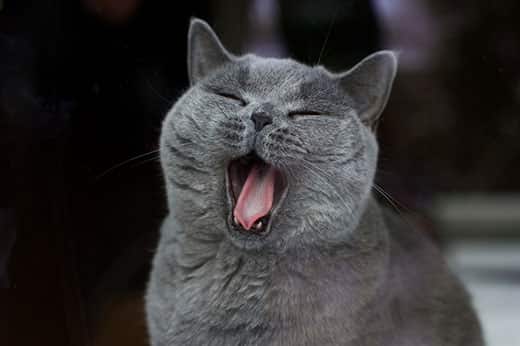 If a cat is diagnosed with periodontal disease, that is, gums, treatment is necessary. For diagnosis, assessment of the degree of the disease and elimination, a complete examination of the oral cavity under anesthesia is necessary.
If a cat is diagnosed with periodontal disease, that is, gums, treatment is necessary. For diagnosis, assessment of the degree of the disease and elimination, a complete examination of the oral cavity under anesthesia is necessary.
If the cause of bad breath in a cat is a systemic disease, the veterinarian will also need to conduct a diagnosis to determine the cause. After the cause is found and eliminated, you should establish a regimen for caring for your pet’s teeth at home.
There are oral care products and even food that will help to cope with bad breath in a cat and various dental diseases. A simple and effective way to fix the problem is to switch the cat to the food recommended by the veterinarian. It will most likely contain ingredients that reduce the formation of tartar. Special additives and uniquely shaped granules have been proven to significantly reduce the formation of plaque and tartar and help maintain fresh breath.
See also:
Kidney Disease in Cats: Don’t Wait for the First Symptoms!
How to brush your cat’s teeth at home
Indigestion in a cat: what to do and how to treat
Skin Diseases in Cats: Symptoms and Treatment



